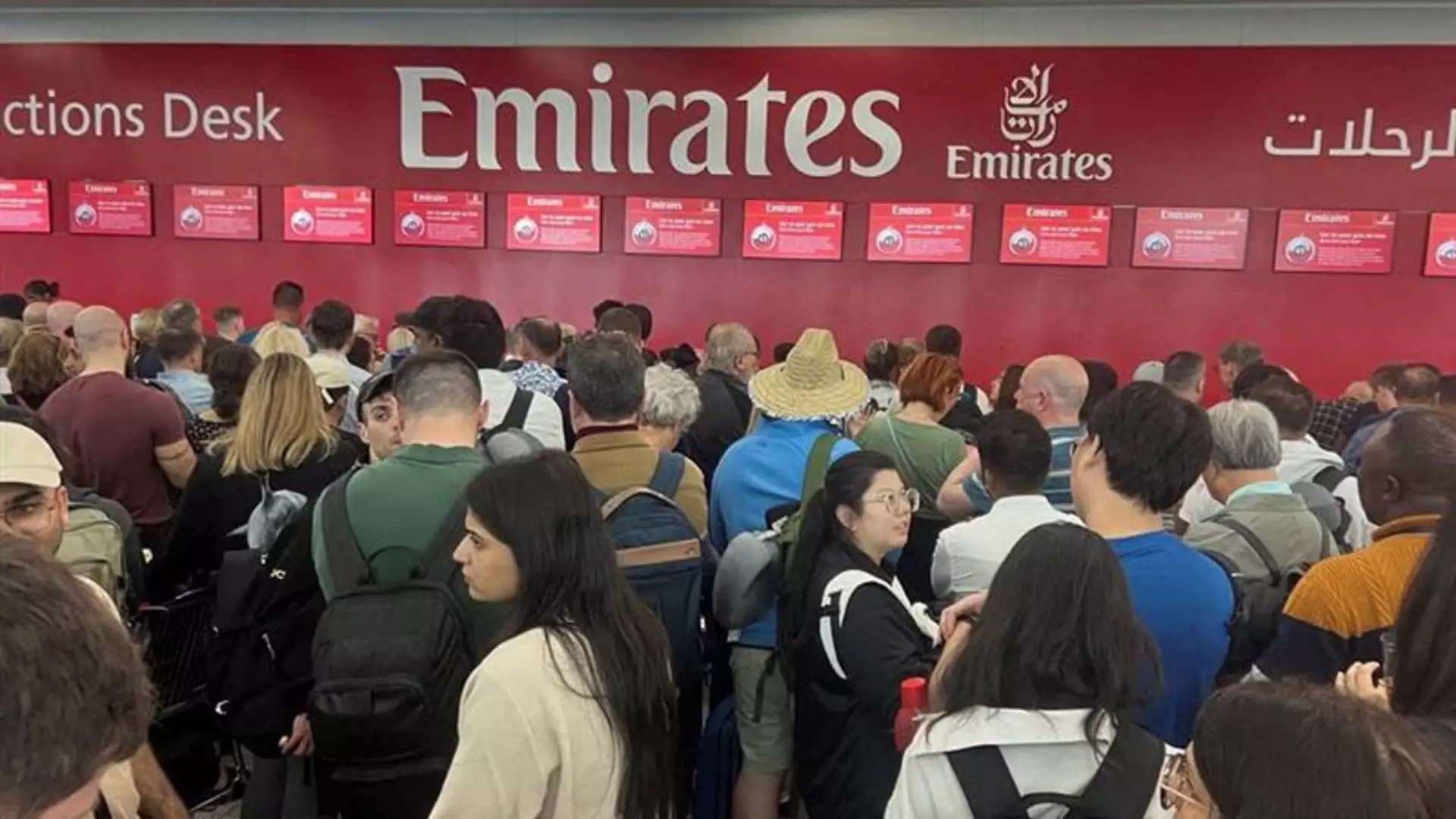The recent apology letter issued by the CEO of Emirates airline to customers due to the historic rains in the United Arab Emirates causing chaos at Dubai’s airport highlights a major crisis. The CEO, Tim Clark, expressed his sincere apologies in response to the disruptions caused to the travel plans of thousands of customers. While it is commendable that the CEO took responsibility for the situation, the severity of the impact on the customers cannot be overlooked. The acknowledgment of the lack of efficiency in the airline’s response is a step in the right direction, but more needs to be done to ensure such incidents do not occur in the future.
The CEO’s letter mentioned the challenges faced by the airline due to flooded roads, which hindered both customers and employees from reaching the airport. This led to the diversion of flights and the cancellation of nearly 400 flights over a span of three days. The disruption in operations resulted in long queues, delays, and an overall sense of frustration among travelers. The lack of information and communication further exacerbated the situation, leaving passengers stranded and confused.
Many passengers took to social media to express their grievances, citing instances of waiting for hours on canceled flights, lack of communication from Emirates staff, and overall chaos at the airport. The accounts shared by customers paint a picture of a disorganized and overwhelmed airline struggling to handle the crisis effectively. The lack of support for passengers stuck in various locations and the delay in providing assistance further compounded the negative experience for travelers.
Response Efforts
While the CEO mentioned that the airline deployed employee volunteers to assist disrupted customers and provided accommodations and meal vouchers, the overall response seemed inadequate given the scale of the disruption. The fact that some passengers had to book their own return home due to the lack of support from Emirates reflects poorly on the airline’s crisis management capabilities. Despite efforts to restore regular flight schedules, the airline still had thousands of pieces of luggage awaiting return to customers, raising questions about the efficiency of the recovery process.
The Emirates airline incident serves as a cautionary tale for other airlines to be prepared for unforeseen events that can impact operations and customer experience. The importance of effective communication, swift decision-making, and proactive assistance to passengers during a crisis cannot be overstated. It is crucial for airlines to have robust contingency plans in place to handle emergency situations and mitigate disruptions to the best of their abilities. The Emirates apology letter should serve as a wakeup call for the airline industry to prioritize customer satisfaction and operational resilience in times of crisis.
While the Emirates airline CEO’s apology letter was a step in the right direction, it shed light on the shortcomings in the airline’s response to the recent crisis. The incident highlighted the need for better communication, coordination, and support for passengers during emergencies. Moving forward, it is imperative for airlines to learn from such incidents and implement measures to improve their crisis management capabilities to ensure a smoother experience for customers in the future.

Leave a Reply